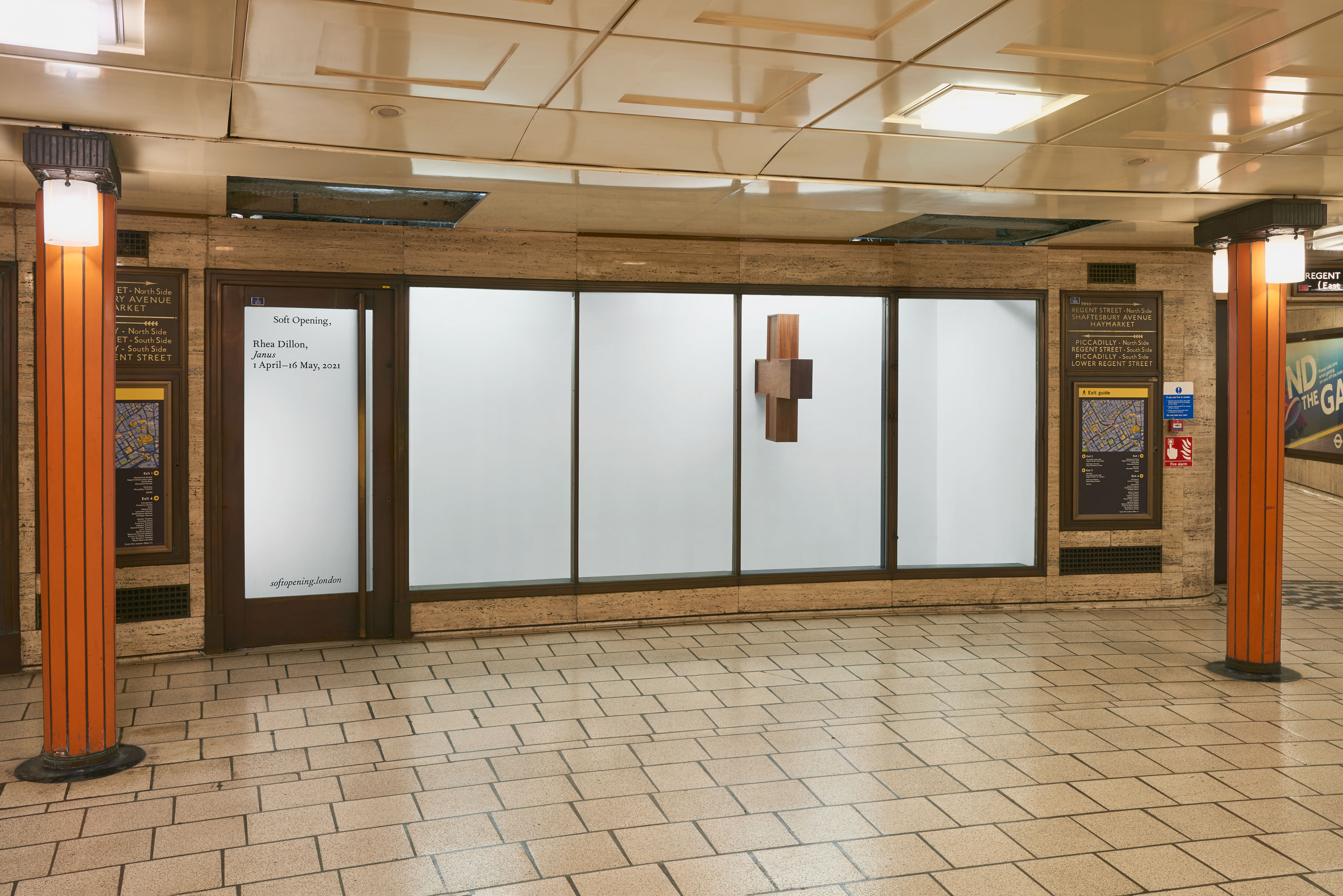Soft Opening is pleased to announce the opening of Janus, a solo presentation from Rhea Dillon at our Piccadilly Circus gallery. An accompanying text from Derica Shields in response to the exhibition will follow in the coming weeks.
Using painting, installation, images, video and olfaction, through her practice, Rhea Dillon examines and abstracts her intrigue of the ‘rules of representation’ as a device to undermine contemporary Western culture, as well as seeking to continually question what constitutes the ontology of Blackness versus its ontic. Dillon is particularly interested in the self-coined phrase ‘humane afrofuturism’ as a practice of bringing forward the humane and equality-led perspectives on how we visualise Black bodies.
Excerpt from interview with Octavia Bürgel in FAMILY PHOTOS: Film premiere looks back at Drawing A Blank, 22 Rue de Lubeck, Paris 16ème, 032c, 26 November, 2020:
“Janus is the Roman God of the past and future. In my work, I never speak to one singular idea. I approach things with my (cursed) abstract brain and then try to synthesize it for myself and [later] for an audience. That piece came from feeling irritated because I had a big-ish gallery get in touch with me and it felt like they didn’t like any of my work and they just wanted me [as a trifecta]: Blackness, queerness, woman—pinned via crucifixion to the walls. I was thinking about a Zora Neale Hurston quote, where she said “I feel most colored when thrown against a sharp white background.” I read it in terms of the experience of a lot of Black artists in the white walled gallery space now.
During lockdown, I’ve been questioning the Black woman’s access to amorphicity. Thinking through the ideas of crucifixion and Jesus’ shapeshifting; Christianty and colonization’s link. Colonization was enforced through a hyper-Christian overthrowing of any kind of practices that existed. Cultures were “sanitized” through Christianity. In Christian spaces, water is used to create a sanitization that further works alongside the promotion of a postmodern hyper-sanitary space. Who is tasked with sanitizing that space? Most often it’s the Black woman. The Capitalocene is upheld on the backs of Black and brown women workers. When we were clapping every Thursday evening for the NHS, we weren’t seeing the workers. There’s a quote by Françoise Vergés in an essay she did for e-flux last year. She says there’s a phantom body that keeps the white male CEO afloat. That body is the body of a Black or brown worker—the women.
Three is a number I use a lot in my work: it pulls everything together, it makes me think about the triangular trade and about a triple consciousness us diaspora kids now have. The cross leaks a slow water drip exploring how middle and upper class spaces are becoming broken up by a deteriorating class system that can’t hold itself up anymore: leaking fortified enclaves. At the end of Vergés’ essay she asks, “who is going to clean up this mess now?” Somebody has to do that. Should that body be mine because it is my work? Should it be the white male curator? Should it be everyone? Janus becomes its own manifesto. January is named after Janus, the start of a new year. Janus speaks to the start of a new radical future.”

